All Stories
-
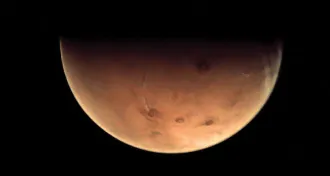 Planetary Science
Planetary ScienceMethane found in meteorites from Mars
Methane stored in Martian meteorites points to possibly habitable environments beneath the surface of the Red Planet.
-
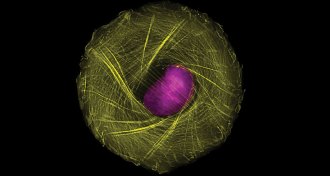 Life
LifeTwisty chains of proteins keep cells oriented
The counterclockwise twist of protein fibers jutting out from the edge of human cells allow the cells to distinguish right from left.
-
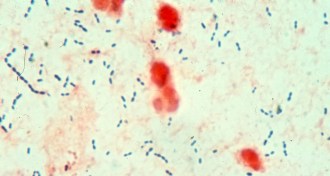 Genetics
GeneticsPneumonia bacteria attacks lungs with toxic weaponry
Some strains of the bacteria that causes pneumonia splash lung cells with hydrogen peroxide to mess with DNA and kill cells, a new study suggests.
-
 Ecosystems
EcosystemsOcean food source lives by day, dies by night
The most abundant carbon fixer in the oceans lives by day, dies by night, and may be key to the balance of marine ecosystems.
-
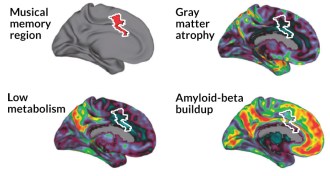 Neuroscience
NeuroscienceAlzheimer’s spares brain’s music regions
Brain regions involved in recognizing familiar songs are relatively unscathed in Alzheimer’s disease.
-
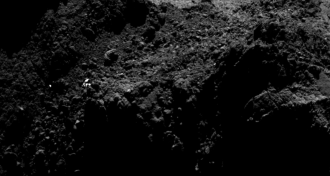 Planetary Science
Planetary ScienceComet lander Philae phones home
The European Space Agency has received signals for its comet lander Philae, which touched down on comet 67P/Churyumov-Gerasimenko in November and has been in hibernation since.
-
 Animals
AnimalsPigs don’t deserve the name ‘Lesser Beasts’
From ancient forests to modern farms, pigs’ relationship with humans has been symbiotic.
-
 Science & Society
Science & SocietyMax Planck, originator of quantum theory, tormented by war and personal loss
A biography by physicist Brandon Brown illuminates the personal struggles of the physics pioneer.
-
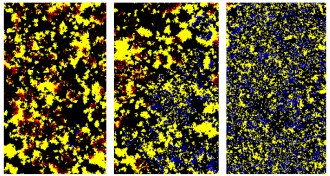 Life
LifeAging: Nature’s way of reducing competition for resources
Aging may have developed in many species as a genetic mechanism to conserve future resources. If the controversial proposal is true, then scientists may be able to greatly extend life span by deactivating the machinery for aging embedded in our DNA.
By Andrew Grant -
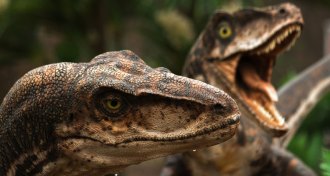 Animals
AnimalsCould the dinos of ‘Jurassic World’ become invasive?
Even if they escaped their island home, the giant reptiles of ‘Jurassic World’ probably wouldn’t survive on the mainland. But the movie’s plants are another story.
-
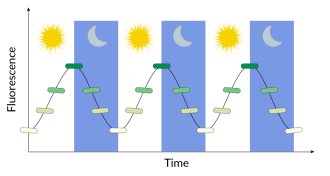 Genetics
GeneticsA circadian clock transplant gives E. coli rhythm
Clockworks from algae built into E. coli may hold future jet lag treatment.
-
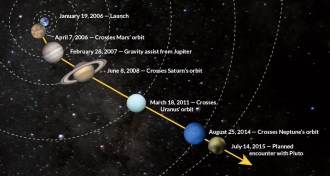 Planetary Science
Planetary ScienceRendezvous with Pluto
Earth will get its first good look at Pluto and its five known moons when New Horizons sails past on July 14.